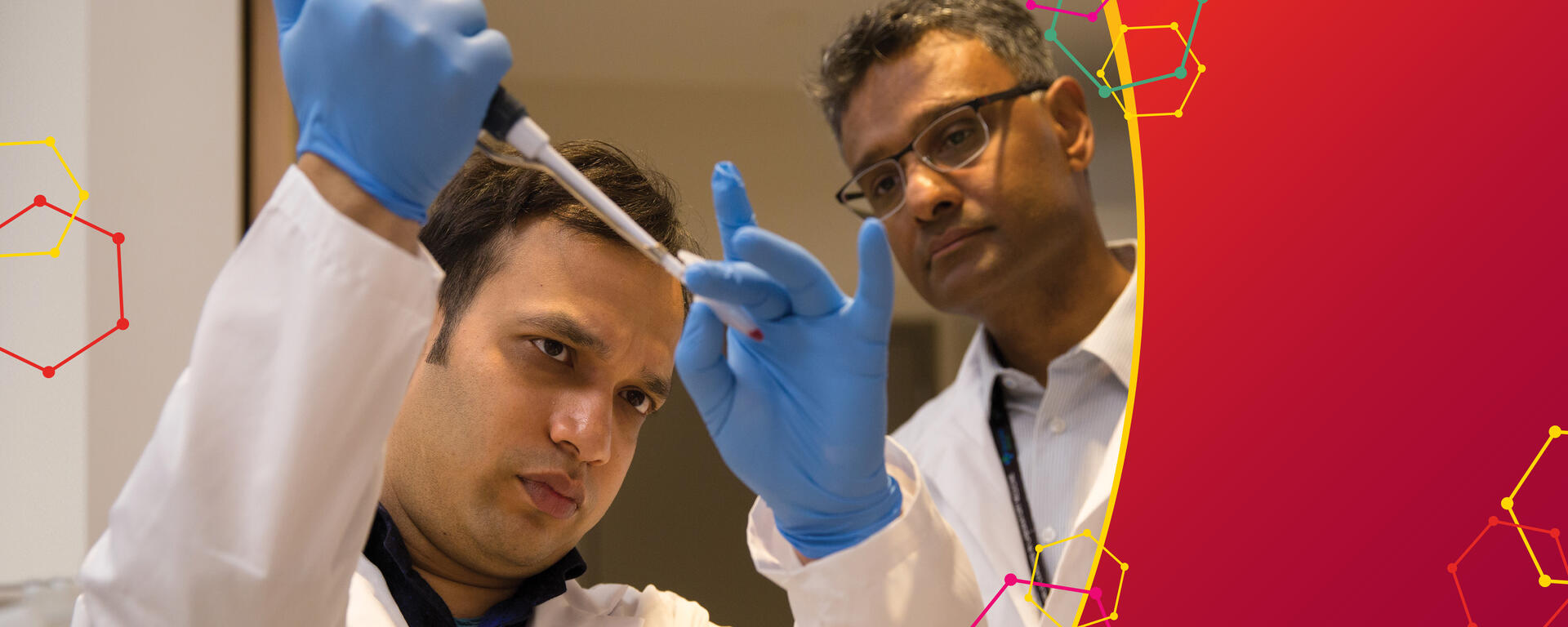We promote discovery science and translational research to enable precision medicine and improve health outcomes for all.
Strategies
1. Invest in investigator-led research platforms and programs, linked to innovation in postdoctoral and graduate training
- Evaluate opportunities to leverage new seed grants
- Prioritize new platforms based on impact on growth of investigator-led research programs
2. Create incentives and infrastructure to support translational and transdisciplinary research activities
- Expand multidisciplinary collaboration, such as with the Faculty of Science, on medicinal chemistry approaches (new chemical entities, repurposing and antisense directed strategies)
- Enabling clinical trials with repurposed chemical entities, new chemical entities, new chemical compounds, novel peptide strategies, immunotherapies, antibodies and mRNA/DNA based technologies
- Collaborate with UCalgary on transdisciplinary scholarship initiative
3. Develop novel approaches to precision therapeutics
- Accelerate progress in living medicine approaches (biologics and cell-based therapies)
- Modify human cells and microbes to harness biologic symptoms within the patient to treat diseases (ex. immune cell therapies, stem cell therapy, microbial therapeutics and in vivo gene editing)
- Leverage existing infrastructure from the International Microbiome Centre, the Centre for Cancer Immunotherapy, and key departments in UCalgary (ex. Biomedical Engineering and Biological Sciences)
- Expand research into advanced technologies, such as therapeutics in devices or robotics
4. Develop and implement novel diagnostic strategies
- Advance integration of genetic, proteomic, biochemical understanding in pursuit of new clinical therapies
- Protein and biochemical diagnostics offer additional opportunity for important insights beyond DNA/RNA
- Patient data-based diagnostics and clinical trajectory analysis (complex data-imaging, physiological, behavioural, psychosocial, social determinants data)
- Complex data such as imaging, physiological, behavioural, psychosocial and social determinant data present incredible opportunities for understanding and diagnosing disease
- Multiscale, multidimensional data analysis and integration (bioinformatics)
5. Design, implement and facilitate interventional investigator-initiated clinical trials
- Support interventional clinical trials with various therapeutic strategies
- Building on existing Clinical Research Unit expertise, we will develop a repository of expertise for regulatory, statistics and therapeutic design
- Develop more efficient ways of conducting clinical trials
6. Develop platforms and funding programs to facilitate research innovation and scholarship
- Expand support of faculty members pursuing startup companies and social innovation
- Include academic reporting on entrepreneurship in university processes
- Investigate a CSM ‘equity stake’ in startup companies


